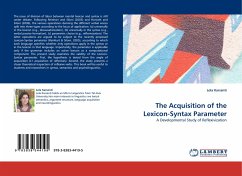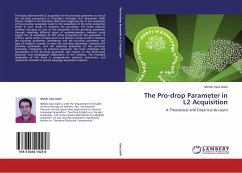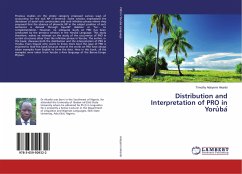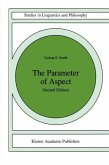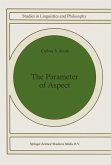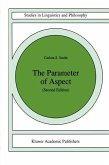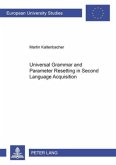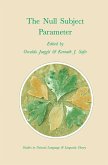The issue of division of labor between mental lexicon and syntax is still under debate. Following Reinhart and Siloni (2005) and Horvath and Siloni (2006), the various operations deriving the different verbal voices split into three types according to the locus of application: (a) universally in the lexicon (e.g., decausativization), (b) universally in the syntax (e.g., verbal passive formation), (c) parametric choice (e.g., reflexivization). The latter operations are argued to be subject to the recently proposed Lexicon-Syntax parameter (Reinhart & Siloni, 2005), according to which each language specifies whether arity operations apply in the syntax or in the lexicon in that language. Importantly, the parameter is applicable only if the grammar includes an active lexicon as a computational component. The present study examines the validity of the Lexicon-Syntax parameter. First, the hypothesis is tested from the angle of acquisition (L1 acquisition of reflexives). Second, the study presents a closer theoretical inspection of reflexive verbs. This book will be useful to students and researchers in syntax, semantics and psycholinguistics.
Bitte wählen Sie Ihr Anliegen aus.
Rechnungen
Retourenschein anfordern
Bestellstatus
Storno

